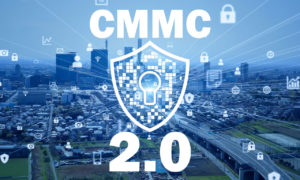In today’s dynamic business landscape, maintaining product quality, ensuring compliance, and driving continuous improvement are essential for success. Quality Management Systems (QMS) have long been the cornerstone of achieving these goals, and the rise of cloud-based solutions is revolutionizing how organizations manage quality.
This month, we’re exploring the advantages of cloud-based QMS—like QMS|share—and how they can streamline your quality processes, enhance efficiency, and empower your organization to achieve new heights of excellence.
Benefits of Cloud-Based QMS
Real-Time Collaboration
Collaboration is no longer confined to physical office spaces. Cloud-based QMS enables teams to work together seamlessly, regardless of their geographical locations. Whether it’s quality-related document reviews, change management, or corrective actions, real-time collaboration ensures everyone stays on the same page.
Take action: Establish cross-functional teams within your organization and encourage real-time collaboration using cloud-based tools. Ensure everyone has access to the latest documents and data and can contribute seamlessly.
Audit Confidence
Audits are a critical part of quality management. With cloud-based QMS, auditors, whether external or internal, can access up-to-date information instantly. Centralized document repositories, version control, and audit trails provide confidence during compliance or regulatory inspections. Say goodbye to digging through paper documents or frantic searches in archaic QMS software.
Take action: Conduct a thorough audit readiness assessment. Identify gaps in document management, version control, and data accessibility. Implement a cloud-based QMS to address these gaps and boost audit confidence.
Faster Product Launches
Innovation waits for no one. Cloud-based QMS accelerates product development cycles. Teams can collaborate on design, testing, and validation in real time. The result? Faster time-to-market without compromising quality.
Take action: Map out your product development process. Identify bottlenecks and areas where collaboration delays occur. Utilize cloud-based QMS features to streamline these processes. Measure the impact on time-to-market.
Key Features of Cloud-Based QMS
Document Control
Cloud-based QMS simplifies document creation, approval workflows, and version management. Authorized users can access the latest documents from anywhere and on any device, eliminating confusion and ensuring compliance.
Take action: Create a centralized document repository. Define clear approval workflows. Train employees on document management best practices. Regularly review and update critical documents.
Risk Management
Identifying and mitigating risks is crucial. Cloud-based QMS integrates risk assessment tools, allowing organizations to proactively manage risks associated with processes, suppliers, and products.
Take action: Create a centralized document repository. Define clear approval workflows. Train employees on document management best practices. Regularly review and update critical documents.
Corrective and Preventive Actions (CAPAs)
When potential issues are identified or when they arise, CAPAs come into play. Cloud-based QMS streamlines CAPA workflows, ensuring timely resolution and preventing recurrence. Automated notifications keep everyone informed.
Take action: Automate CAPA workflows. Assign responsibilities promptly when issues arise. Monitor CAPA progress and track effectiveness. Use cloud-based notifications to keep everyone informed.
Supplier Management
Managing suppliers efficiently is essential for quality. Cloud-based QMS provides a centralized platform for supplier evaluations, performance tracking, and collaboration. Stay connected with your supply chain partners.
Take action: Evaluate your current supplier management process. Are you still relying on spreadsheets and emails? Transition to a cloud-based QMS for centralized supplier evaluations, performance tracking, and collaboration.
Considerations for a Smooth Implementation
Data Security
Address security concerns upfront. Choose a reputable cloud provider with robust encryption and access controls to protect your sensitive data while reaping the benefits of the cloud.
Take action: Collaborate with your IT and security teams. Define data access controls, encryption protocols, and disaster recovery plans. Regularly review security measures as your cloud QMS evolves.
Scalability
Cloud solutions grow with your organization. Whether you’re a startup or an enterprise, scalability ensures your QMS adapts to changing needs. No more worrying about server upgrades!
Take action: Assess your organization’s growth trajectory. Choose a cloud provider that scales effortlessly. Plan for increased user load, additional modules, and expanding data storage needs.
Integration with Existing Systems
Seamless integration is key. Ensure your cloud-based QMS plays well with other enterprise tools (e.g., ERP, CRM, etc.). Data flow should be smooth, enhancing overall efficiency.
Take action: Create an integration roadmap. Identify existing tools (e.g., ERP, CRM, etc.) that need to work seamlessly with your QMS. Test integrations thoroughly and train users on the new ecosystem.
Final Thoughts
Cloud-based QMS isn’t just a trend; it’s a strategic move toward agility, compliance, and quality excellence. Take action today! Evaluate cloud-based solutions, involve stakeholders, and embark on a journey that transforms your quality processes.
Don’t worry – you don’t have to act alone. Our experienced QMS Consultants are ready to help.
Remember, your QMS is the backbone of quality assurance. Choose wisely, and let the cloud empower your organization’s growth.
Learn more about QMS|share and schedule your demo today!









